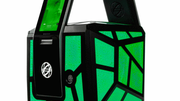News
CardConnect secures tokenization patents
Tokenization reduces or entirely removes systems from the scope of PCI compliance because it eliminates all real touch points with actual card numbers.
October 31, 2014
The U.S. Patent and Trademark Office Payment has granted two tokenization patents to CardConnect, a payment processing and technology services provider. The company uses the patented technologies in its CardSecure solution and PanPad device, a news release said.
U.S. Patent 8584251 covers systems, methods and software used for performing tokenization. U.S. Patent 8763142 covers browser-based systems, methods and software used for performing tokenization, as well as hardware-based systems, methods and software used in tokenization — such as EMV-ready terminals that use point-to-point encryption.
Tokenization is a data security process that encrypts sensitive information — such as a consumer's payment card data or personally identifiable information — and replaces it with a mathematically irreversible token. The token has no algorithmic relationship to the original piece of data, meaning it cannot be unlocked with a decryption code.
In addition to protecting confidential information, tokenization also reduces or entirely removes systems from the scope of PCI compliance — a set of rules set forth by the Payment Card Industry Security Standards Council — because it eliminates all real touch points with actual card numbers.
"In the last year alone, an enormous amount of cardholder information has gotten into the wrong hands simply because businesses cannot protect raw card data," said CardConnect Chief Security Office Rush Taggart, who played an integral role in the development of the patented technologies. "Now more than ever, tokenization, coupled with point-to-point encryption and EMV, will help us all avoid catastrophic data breaches and ensure that our most sensitive information remains protected."
 ChatGPT
ChatGPT Grok
Grok Perplexity
Perplexity Claude
Claude












